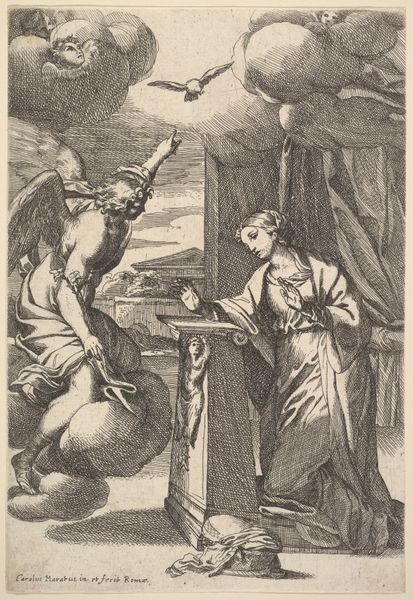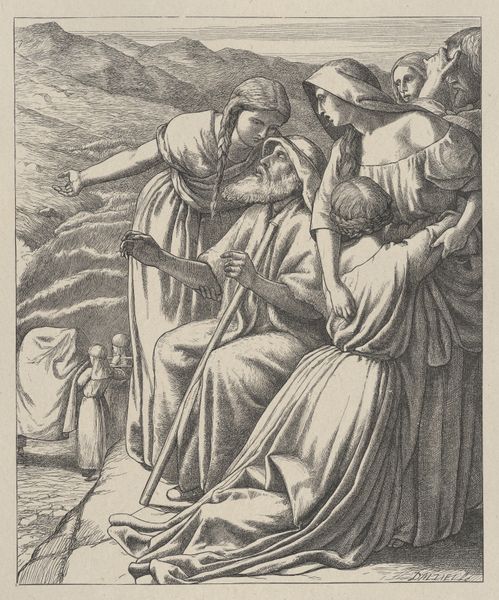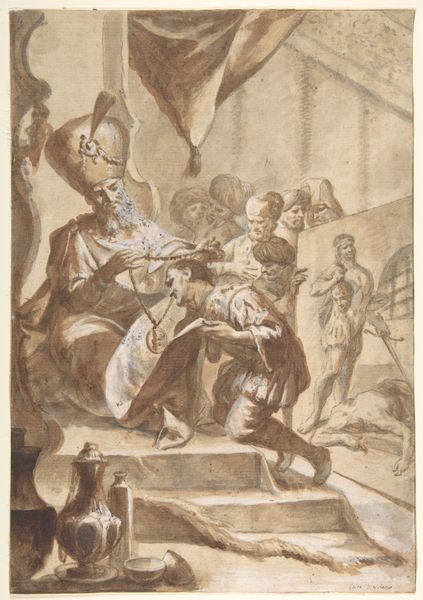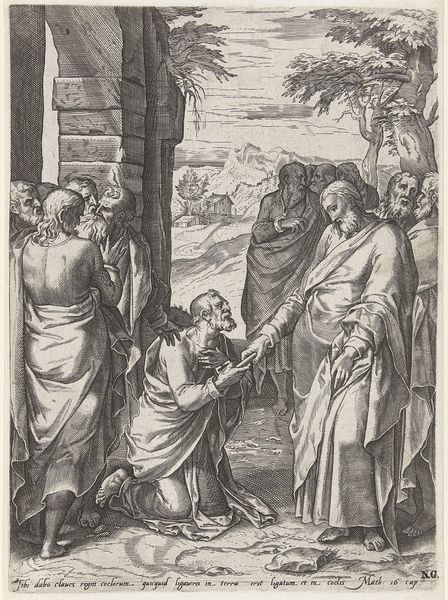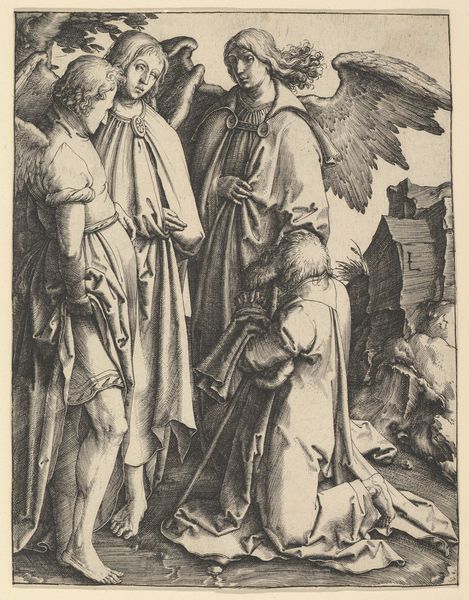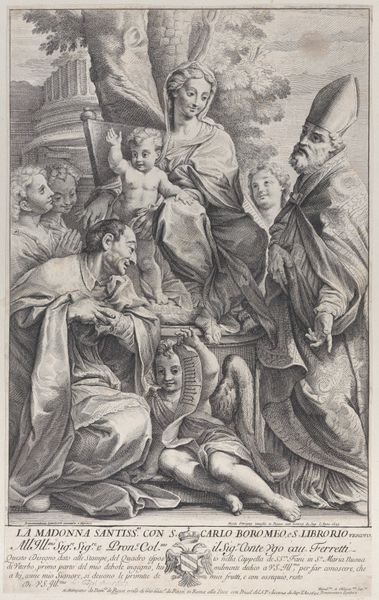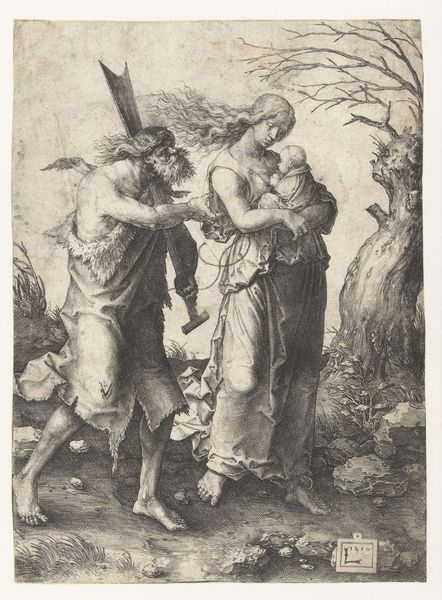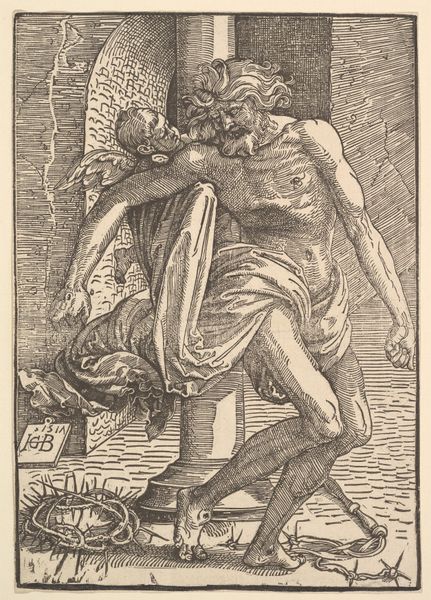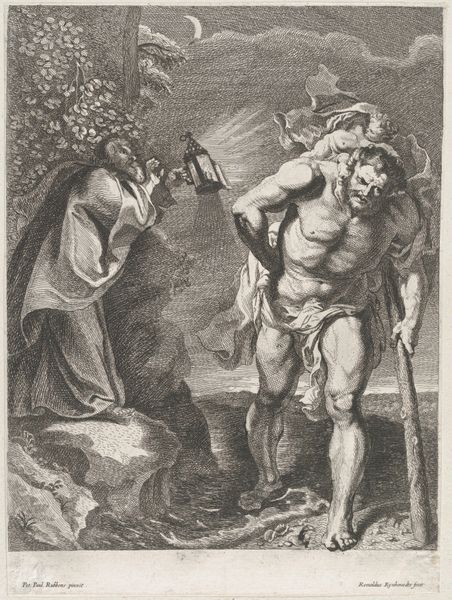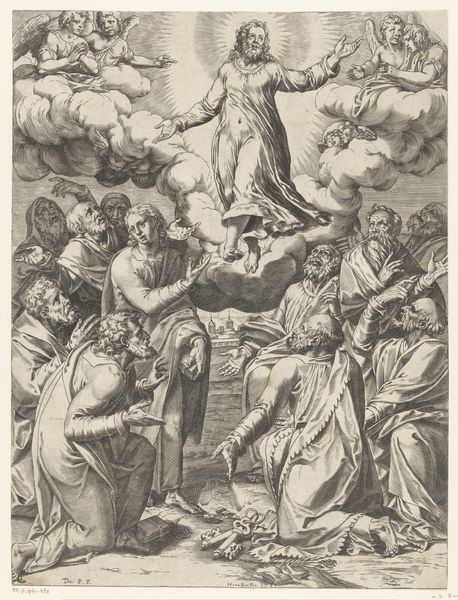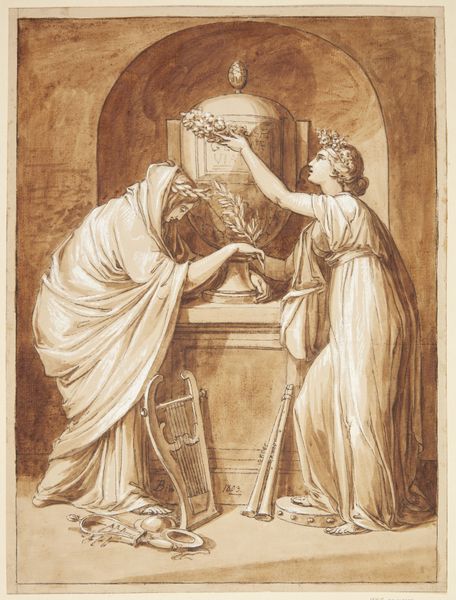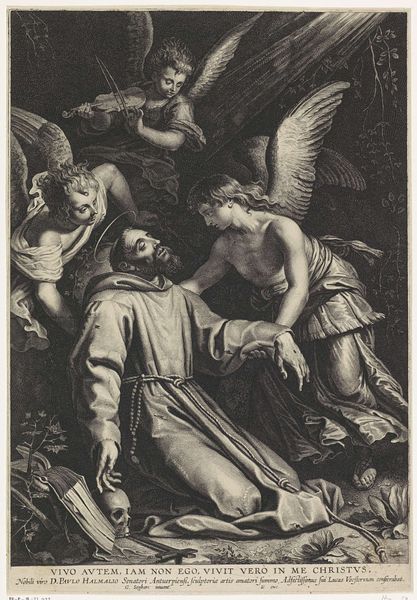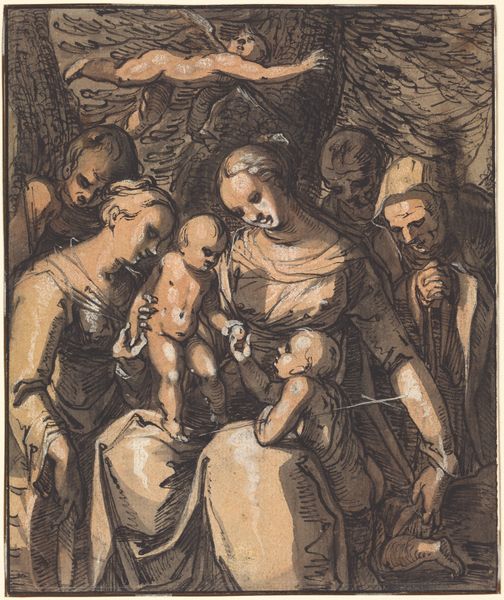
painting, oil-paint
#
portrait
#
narrative-art
#
painting
#
oil-paint
#
mannerism
#
figuration
#
history-painting
#
academic-art
#
italian-renaissance
Copyright: Public domain
Jacopo Pontormo painted "Noli me tangere," which is Latin for "Do not touch me," sometime in the 16th century. It captures the moment when Mary Magdalene encounters the resurrected Jesus. During the Renaissance, interpretations of the Bible were evolving. "Noli me tangere" reflects both the religious devotion and the social expectations of the time. Mary Magdalene, often seen as a repentant figure, reaches out to Jesus, but he recoils. This interaction reveals the period's complex ideas about women, spirituality, and the divine. The painting suggests a moment of intimate recognition, but also a boundary that cannot be crossed. Pontormo's figures are elongated and emotive, set against an otherworldly landscape. The contrast between Mary's yearning and Jesus's detachment creates a powerful emotional tension. This artwork invites us to consider the roles of faith and gender in shaping personal encounters with the divine. It also reflects how art can be a space for negotiating cultural norms and spiritual experiences.
Comments
No comments
Be the first to comment and join the conversation on the ultimate creative platform.
